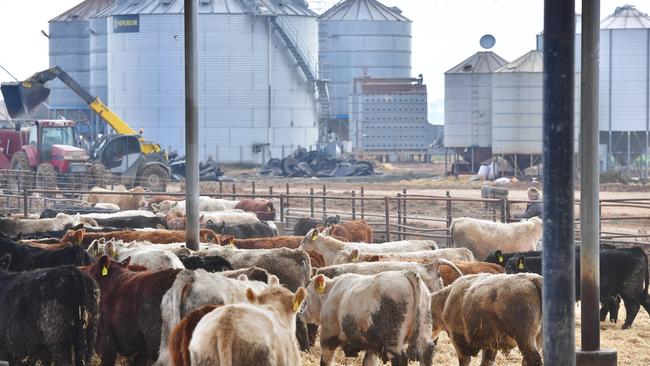Limited supplies of US cattle lead to reduced earnings for JBS
The world’s largest animal protein producer has recorded a big fall in earnings this year, but Australia’s supply of cattle has buoyed returns for the processor.

It is not only sheep and cattle producers feeling the cost-price squeeze – the world’s largest animal protein producer, JBS, has recorded a less profitable year, with a decrease in its earnings before tax of 49 per cent, to $US3.5 billion, in the past calendar year.
The international giant drew a global business net revenue of $US73 billion, which was fairly stable on the previous year.
The Australian arm of JBS saw a better result with a net revenue of $US6.2 billion, and a 2.4 per cent higher earnings before interest, tax, depreciation and amortisation, of US$454 million.
JBS global chief executive officer Gilberto Tomazoni said the company’s “multi-protein and multi-geography strategy puts us in an unmatched position in the global industry” and allowed JBS to “capitalise on the cattle cycle upswing in Brazil and Australia, while our American operation faces margin declines due to current market conditions”.
Mr Tomazoni said for JBS the “improved outlook” in Australia was reflected in a “significant increase in margin in the fourth quarter of 2023”.
“In Brazil, where the situation is similar, significant growth in cattle processing volume, increased value-added product sales, the authorisation of new plants to supply the Chinese market, as well as improved profitability of exports offer promising prospects for the beef
business in the short and long term.”
While JBS’s profitability fell in the US business on the back of high cattle prices paid to producers, in Australia, cheaper cattle improved JBS’s position.
According to the JBS Earnings report, revenue growth in Australia was the “result of higher volumes sold, reflecting the greater availability of cattle in the market”, leading to a “more favourable cycle”.
Even so, an 11 per cent increase in beef sold was not enough to offset the reduction in prices in the domestic and international markets, the report stated.
Independent analyst Simon Quilty, Global Agri Trends, said JBS’s results were expected, given “beef processing has been really challenging in the last six months” in North America.
However, he said the company’s global diversity allowed it to manage risks of supply and prices. “It has proven to be a very effective model for JBS,” he said.





